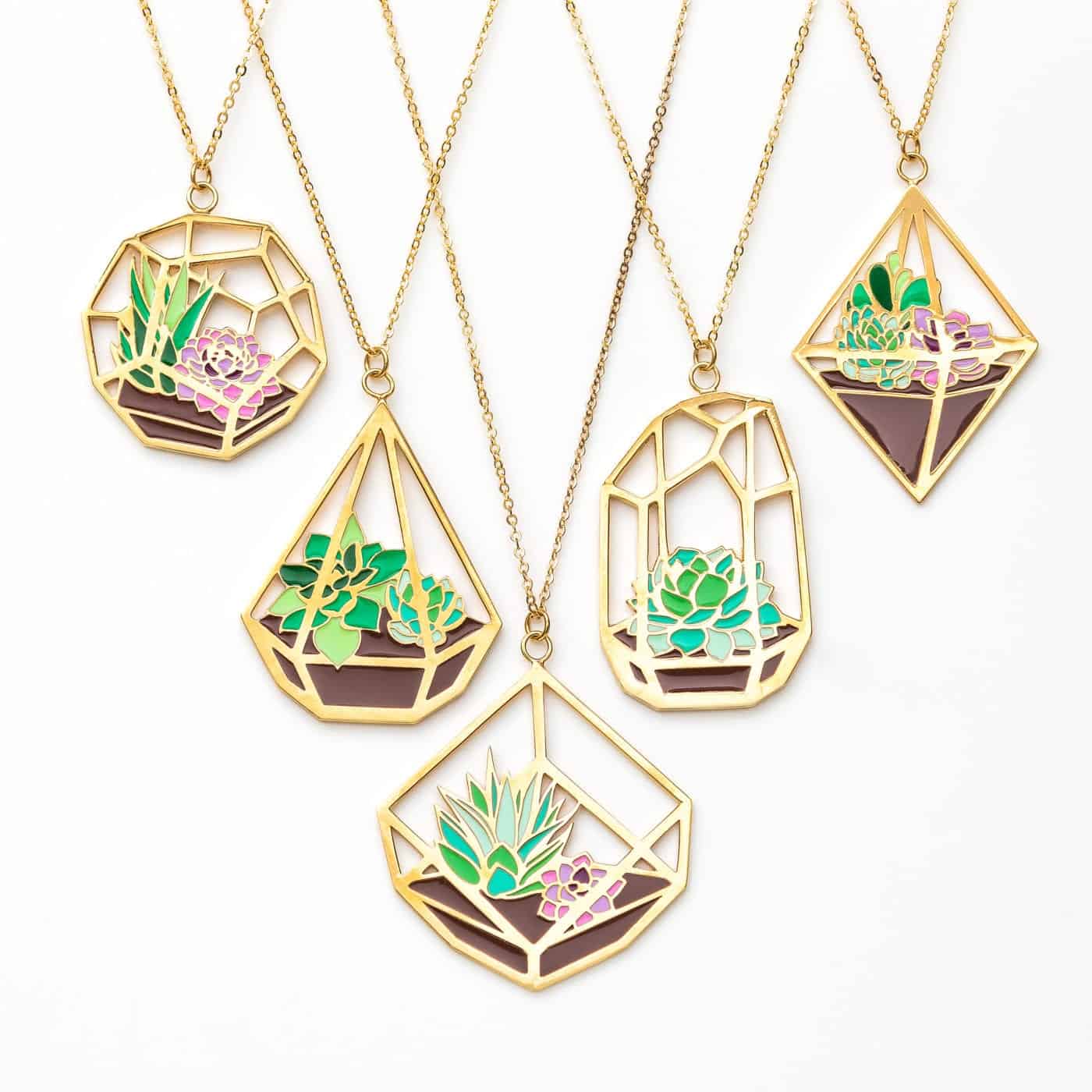Birmingham School of Jewellery; “Ones To Watch”
Reading Time: 4 minutes
Talented students from Birmingham’s School of Jewellery are featured in the latest edition of JQ Life (Issue 2 is out now). This week, we have shared the full interviews from two of the students; Ugne Nikitinaite and Eleanor Tucker.
Ugne Nikitinaite: HND Jewellery and Silversmithing

What inspires your work?
I am mostly inspired by nature, space, and anything that has a mystical or magical touch to it – swirls, twirls, and unnatural shapes often have a very pleasing aesthetic to them, as long as you know where to look!
Are you currently working in the JQ or do you plan to work in the JQ?
Yes and no – most of the time I work from home, I’m self-employed so I don’t really mind where I end up settling down. That being said, I still often visit the JQ for external work, supplies, and so on. So, while I’m not based in the JQ, I still get some work done there.
Why did you choose to study in the JQ?
A university focusing on jewellery in the very heart of a place literally called the Jewellery Quarter? For someone who was interested in a jewellery design career, that was an obvious choice. I was surrounded by makers and suppliers, most with years and years of experience – not only would I get the education I wanted, but also the connections and services to guide me through the years to come.
What’s the best thing about being a student in the JQ?
The convenience! Suppliers and makers aside, the university is also surrounded by cafes, takeaways, and convenience stores – you could pretty much stay and work on projects 24/7 if it wasn’t for the need to sleep! Everything is within a 5-10-minute walk, including many transport links to and from the city.
Check out Ugne’s work at www.moonlume.com
Eleanor Tucker: BA (Hons) Horology

What inspires your work?
My final degree piece is a planisphere clock, which displays the local constellations throughout the day and night. The concept is really influenced by the incredible astronomical town clocks such as the one in Prague, and by 16th century table clocks – both of which are spectacular works of both art and engineering – although the movement itself is entirely my own design. However, the majority of my work is clock repair, and in that area, I am inspired mainly by the work of museums, who endeavour to preserve, understand, and share historical timepieces which were made so long ago, not only with extreme care and precision, but with a sense of artistry and design which I think is increasingly becoming lost in modern design.
Are you currently working in the JQ or do you plan to work in the JQ?
Since graduating I’ve moved home to Devon for the summer, and I’m working for my family’s Stained-Glass restoration business, painting new glass panels to replace those that have been broken. It’s rather like making a replica of a puzzle where half the pieces are missing and there’s no picture on the box. In October, I’m hoping to begin a yearlong Graduate Diploma in Clock Conservation, at West Dean College in Sussex; I have been offered a place, but I still need to raise the funds to be able to attend. After that, I hope to begin work as a museum conservator somewhere in the country.
Why did you choose to study in the JQ?
The School of Jewellery is the only place in the country that offers a degree course in Horology. We’re very lucky to be able to study somewhere with such a wide-ranging spectrum of focuses- from the history of timekeeping, to the design and manufacture of clocks- taught by industry professionals, with great links to the industry itself. The technical staff’s expertise and the machinery available to us to use have been invaluable, and the rare processes or expertise not immediately available within the school are always easily sought within the quarter.
What’s the best thing about being a student in the JQ?
The ease of buying tools and materials has been amazing; I think I speak for all horology students when I say that HS Walsh have been a total lifeline for three years- being able to pop around the corner and buy a very specific drill bit or watch jewel at 10 to 5 in the evening has saved me on several occasions.
We are of course very lucky as well to have the brilliant selection of cafes and pubs the quarter has to offer right on our doorstep. I’m especially thankful, having lived mainly on pasta for the last month of my degree, to The Hive for getting me the occasional dose of vegetables.
You can find Eleanor’s work on Instagram: @alittle_time
